
by Clair Mooney | 22 Apr, 2021 | Main News Feed
The Scottish Government has produced guidance to support businesses across Scotland to reopen safely by providing posters and digital assets that can be used to promote the latest guidance and regulations to employees and customers.
The Toolkit – Helping your business to reopen safely can be accessed here.
Businesses are encourgaed to utilise the toolkit and display them in key spaces where staff and the general public can see them. The guidance and regulations promoted in the resources are critical in our combined efforts to enable businesses to reopen safely while minimising the spread of COVID-19.
The campaign toolkit includes the following resources:
· 5 posters, covering messaging for both business staff and customers
· 4 social / digital posts
· An A5 leaflet
· A window sticker
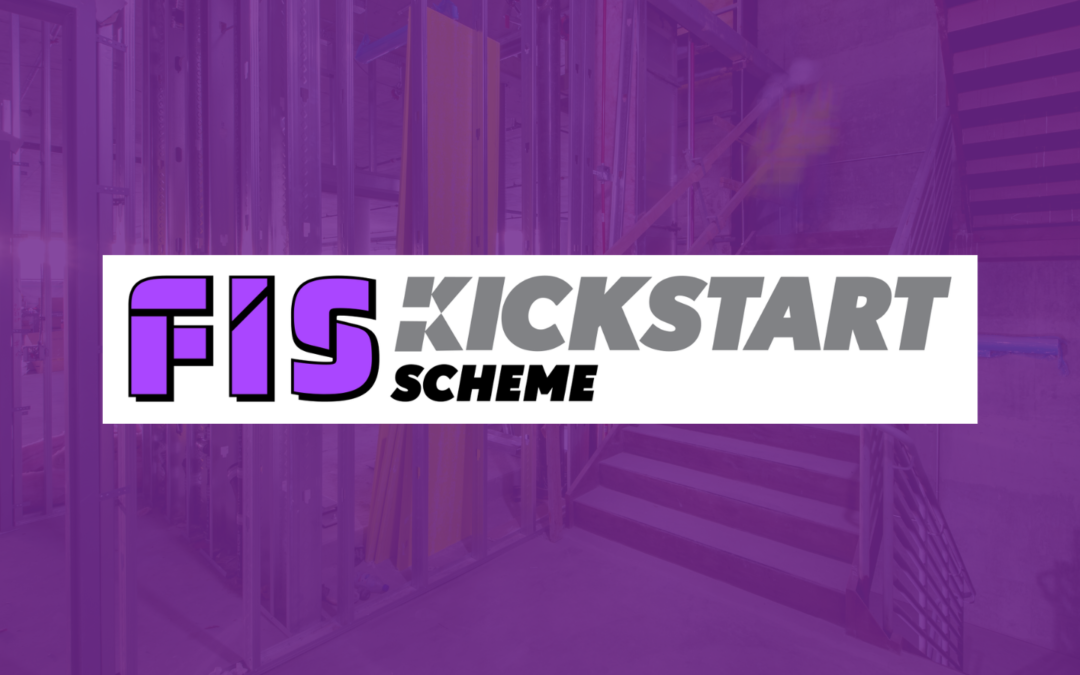
by Clair Mooney | 22 Apr, 2021 | Labour, Skills
There have been reports of up to 60% labour not being available by some FIS members. With this in mind, FIS has two projects specifically designed to attract people into the sector. In addition, the Governments Plan for Jobs has four initiatives that rely on employers’ willingness to provide work placements and/or for T-Level students industrial placements.
Critical to the success of these two projects is the commitment from employers to give individuals a chance by offering work placements.
FIS Build Back Programme
This programme accepts individuals from a range of backgrounds including HM Forces Career Progression candidates and clients put forward by the Department for Work & Pensions (DWP). To help prepare the candidates for work, each learner receives training in drylining finxing and boarding and are supplied with personal protective equipment, a set of tools and a CSCS Provisional Card. The candidates just need an opportunity to show employers what they can do during a work placement. This may ultimately lead to a full-time work opportunity and will also add new talent to the workforce.
There are currently 43 HM Force Career Progression candidates that have received Fixer Boarder training available for work placement now. Please contact Catherine Bullough by email: catherinebullough@thefis.org for details.
FIS Kickstart Programme
This is part of the Government’s Plan for Jobs; we help employers fill their new vacancies. By working with the DWP, FIS can help to source suitable candidates for a six-month job placement within the business. Once successful candidates are placed with the company, the employer is entitled to claim a support grant of £1500 plus the national minimum wage salary payments based on 25 hours per week.
For more details on these projects and to register your interest in offering work placements please contact Catherine Bullough, Skills and Training Coordinator on 07900 083325 or email catherinebullough@thefis.org

by Clair Mooney | 21 Apr, 2021 | Main News Feed
Residents across England will be better protected as the government takes the next step to ensure materials used to build the nation’s homes are safe and tested properly.
Housing Secretary Robert Jenrick has today (20 April 2021) appointed two experts to lead an independent review of the system for testing construction products. Former government adviser and construction expert Paul Morrell OBE will be the chair of the independent panel, along with legal expert Anneliese Day QC.
The review, announced earlier this year, will examine how to strengthen the current system for testing construction products to provide confidence that these materials are safe and perform as marketed.
The review forms part of the government’s ongoing programme of work to reform and strengthen building safety regulation and comes after testimony to the Grenfell Tower Inquiry exposed evidence of testing irregularities and potential gaming of the system by some manufacturers.
Housing Secretary Rt Hon Robert Jenrick MP said:
The Grenfell Tower Inquiry has heard deeply concerning suggestions that some construction product manufacturers may have gamed the system for testing these materials and compromised the safety of residents.
We are taking these allegations very seriously and will await the Inquiry’s final recommendations – but it is clear that action is needed now to ensure products used on buildings always meet the highest safety standards.
I am pleased to appoint Paul Morrell OBE and Anneliese Day QC to lead this independent review of the system for testing construction products that will build on the significant progress we have already made to make buildings safer.
The panel will engage with a wide range of stakeholders to seek their views on how the system of safety testing of construction products could be improved and will report later this year with recommendations.
The government has already announced that a new National Regulator for Construction Products will be established within the Office of Product Safety and Standards and be given powers to remove any product from the market that presents a significant safety risk; and prosecute and fine any company that breaks the rules.
These measures form part of the government’s wider, ambitious reform of the sector, which includes the draft Building Safety Bill, that will bring the biggest improvements to building safety standards in 40 years and strengthen the regulation of construction products.

by Clair Mooney | 21 Apr, 2021 | Main News Feed, Transformation
The role of the Industry Safety Steering Group (ISSG) is to report on the progress of the construction industry in delivering culture change to support greater building safety; and to challenge and hold industry to account on behalf of the Secretary of State for the Ministry of Housing, Communities and Local Government.
Andy Mitchell (Co-Chair of the CLC), Graham Watts and Peter Caplehorn (Co-chairs of the CLC Building Safety workstream) attended an ISSG meeting in late 2020 to report on progress of developing the CLC Building Safety workstream. Following on from this meeting, correspondence has been exchanged between Dame Judith Hackitt and Andy Mitchell.
The letters can be read here: ISSG to CLC – December 2020, CLC to ISSG – April 2021

by Clair Mooney | 20 Apr, 2021 | Skills
The apprenticeship service is hosting a series of support webinars, the next one is taking place on Wednesday 28 April between 12pm to 1pm.
Since 1 April 2021, all new apprenticeships are managed and funded using the apprenticeship service. All employers hiring apprentices need to have an apprenticeship service account. This webinar is aimed at employers, to enhance your understanding of the apprenticeship service and its features. The webinar will include information on:
- what the apprenticeship service is and how to use it
- updates on recent and new developments in the apprenticeship service
- how to set permissions in your apprenticeship service account
Attendees will have the opportunity to take part in a live question and answer session. The webinar will be recorded and made available afterwards via the Education and Skills Funding Agency National Apprenticeship Service webinar portal and YouTube channel. To register please go to Apprenticeship Service | GoToStage.com

by Clair Mooney | 20 Apr, 2021 | Main News Feed
Information has been added to guidance with information about when to use an ‘XI’ prefix in UK VAT numbers in the ‘paying VAT’ section. For more information, visit https://www.gov.uk/guidance/trading-and-moving-goods-in-and-out-of-northern-ireland

by Clair Mooney | 20 Apr, 2021 | Main News Feed
Apply for a grant to help small and medium-sized businesses new to importing or exporting.
You can now apply for the SME Brexit Support Fund. Smaller businesses can get up to £2,000 to pay for practical support, including training or professional advice to adjust to new customs, rules of origin and VAT rules when trading with the EU.
You can apply and find more information on eligibility here.
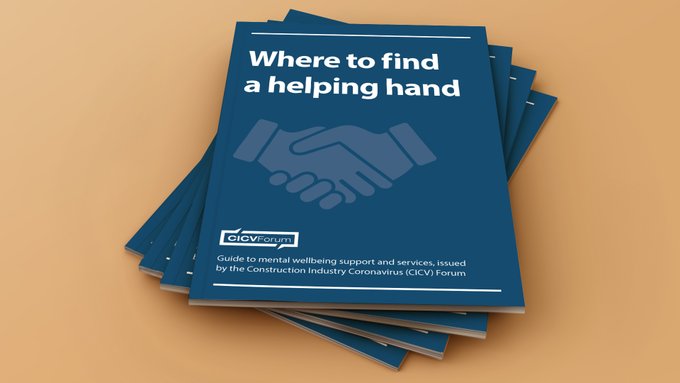
by Clair Mooney | 19 Apr, 2021 | Main News Feed
As part of #StressAwarenessMonth the CICV Forum has produced a guide to mental wellbeing, with a comprehensive overview of leading charities and support networks and advice on where to find essential services. #COVID19 #InThisTogether
A copy of the guide, Where to find a helping hand, can be downloaded at https://t.co/JkakMFBe9c https://t.co/NWA8Mp7dqN
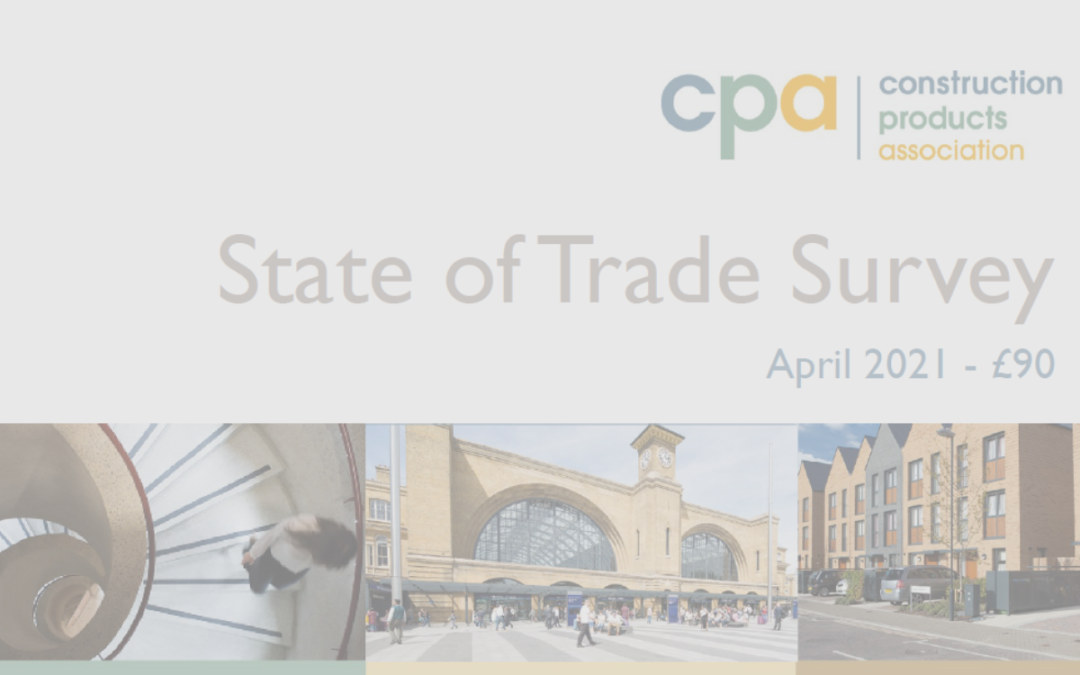
by Clair Mooney | 19 Apr, 2021 | Market data
The recovery in construction product manufacturing continued in the first quarter of 2021, according to the Construction Product Association’s (CPA) State of Trade Survey.
So far, the pick-up in construction activity has been led by private housing, infrastructure and the repair and maintenance sectors. Nevertheless, a constrained global supply of raw materials and components, as well as the associated increases in prices, is weighing on the outlook for the year ahead.
FIS members can access the full report here.
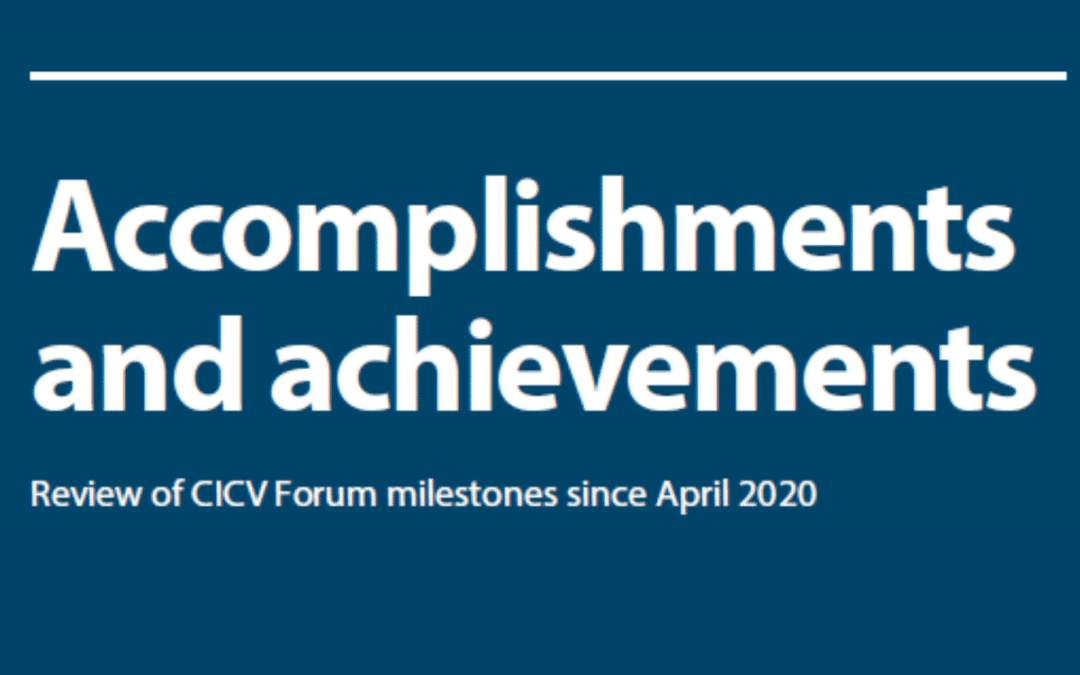
by Clair Mooney | 8 Apr, 2021 | Main News Feed
After marking the anniversary of its first-ever meeting, key members of Construction Industry Coronavirus (CICV) Forum have revealed their personal highlights of working together for the ever-expanding collective.
The unique collaboration of trade associations, professional bodies, companies and individuals has helped guide the industry and public through a year of massive upheaval with a wealth of information and unrivalled teamwork.
And as the Forum celebrated the anniversary of its first meeting on 5 April 2020 by releasing an updated round-up of its accomplishments over the last 12 months, many members said their most fervent wish is for this spirit of togetherness to continue.
Alan Wilson, CICV Forum Chair and Managing Director of electrical trade association SELECT, said: “When the idea of the Forum was first mooted, I don’t think that anyone could have imagined the way in which the concepts of collaboration, cooperation and commitment would be so quickly translated into action.
“The many distinct strands of the sector have come together as never before with one common goal – ensuring that not only do we survive this dreadful pandemic, but that we come out of it stronger and more positive than before. For me, that has been the undoubted highlight.”
Gordon Nelson, Scotland Director of the Federation of Master Builders, echoed the sentiment, saying: “It was quite remarkable how, once the Forum was established, people were queuing up to come aboard, wanting to help and contribute their skills and expertise. It really did show that we are #InThisTogether.
“The highlight for me is that organisations are still eager to join and sit alongside other senior representatives who operate the length and breadth of Scotland’s built environment supply chain.”
For other members of the Forum, highlights covered a wide range of areas from the past 12 months, including the influence the group has achieved, the quality of the information that’s been shared and the accessibility of the guidance and advice offered.
John McKinney, Scotland Manager of the NFRC, said: “For me, what was so pleasing was how quickly it became clear that the Forum was speaking for the entire sector, and with that weight of influence behind it, was soon viewed as a valuable and influential voice for the industry.
“I have been heartened to see how rapidly we gained a place at the top decision-making tables and could speak authoritatively, listen constructively and act decisively with the Scottish Government, local government and other major bodies about the most pressing matters as the pandemic progressed.”
Rebecca Crosland, Head of Health & Safety at the Building and Engineering Services Association (BESA), said: “My highlight has been seeing how, at a time of uncertainty and confusion, the expertise of Forum members has helped create a strong pipeline of relevant, practical and easy-to-understand information.
“Over the course of the year, we have regularly produced guidance documents with a wealth of health and safety advice to keep workers, clients and the public safe, and will continue to provide updated guidance as we progress down the route map to recovery.”
Iain McIlwee, Chief Executive of the Finishes and Interiors Sector, echoed her sentiments, saying: “I was delighted to see the quick realisation that any information had to be disseminated in a simple, easily digestible form which would resonate throughout the hugely disparate elements of the sector.
“The resulting high points have been many, but I’ve really enjoyed the animations on domestic working, returning to work safely, physical distancing and face coverings that, like much of the guidance, has been adopted across Scotland and beyond.”
For other members of the Forum, the highlights have included its free webinars, the important papers produced, the unanimity in seeking the common good and the considered and thoughtful visions for the future.
Len Bunton, construction consultant and co-Chair of the Forum’s Pipeline and Commercial Sub-Group, saluted the wide range of open-source online sessions hosted by the Forum. He said: “My personal highlight has been the wealth of free essential commercial advice that’s been delivered, including vital information on payments and contracts.
“The Forum’s list of webinars illustrates how these talks, all presented by renowned industry experts, offered clear and relevant guidance to today’s construction professionals.”
Fiona Hodgson, Chief Executive of the Scottish and Northern Ireland Plumbing Employers’ Federation (SNIPEF), said: “In the past, construction has been seen as competitive and confrontational, so it was enormously encouraging to see how people pooled resources to produce a range of expert analysis and advice on helping the sector.
“This unique collaboration has not only given the industry an authoritative common voice, it has also resulted in a wide range of papers that have been shared with powers-that-be to inform and enlighten them about the true state of the sector and the futures towards which it is striving. For me, that is a significant highlight of a truly eventful year.”
Vaughan Hart, Managing Director of the Scottish Building Federation, and co-chair of the Forum’s Skills and Workforce sub-group, said: “Perhaps it has taken an emergency of almost inconceivable proportions to pull the industry together, but whatever the reason, the result has been nothing short of excellent and is undoubtedly a high point for me.
“I am hearted to see that, for the first time, this is the sector speaking with one voice, for the greater good not only of its component parts, but for the future health of the sector as a whole and for the future benefit of the country and the wider economy.”
Grahame Barn, Chief Executive of CECA Scotland, agreed with his compatriot, adding: “A year ago, the construction industry in Scotland suffered a convulsion which, in the days before COVID-19 would have been unimaginable.
“My highlight has been the willingness of so many people to offer practical and constructive ways to keep alive a vitally important sector that is a major economic multiplier, employs 175,000 people and contributes £21.5 billion to GDP.”
The final word went to Hew Edgar, Associate Director of Policy at the Chartered Institute of Building (CIOB), who said: “As a direct result of our communications and interactions with the industry, the highlight for me has been our collective vision for the future.
“After the initial Blueprint for our Industry, I was proud to be involved in the creation of the recent CICV Forum Manifesto, which highlights the issues that an incoming government in Scotland needs to address after the Holyrood elections next month (May).
“It has been a productive, useful and surprising year, but the industry can be assured that the Forum will continue to outline practical measures we can all take to build a better future.”
Made up of more than 70 trade associations, professional services bodies and companies, the CICV Forum was formed in March 2020 and held its first meeting on 5 April. Since then, it has maintained a steady supply of information and practical advice to the sector as well as carrying out surveys, hosting webinars and holding regular discussions with the Scottish Government.

by Clair Mooney | 6 Apr, 2021 | Skills
An estimated 11 million adults now have the opportunity to gain a new qualification for free, designed to help them to gain in-demand skills and secure great jobs.
Free courses for jobs as part of the Lifetime Skills Guarantee’s
As part of the Lifetime Skills Guarantee adults in England who are 24 and over and do not yet have A levels or equivalent can now take their first full level 3 qualification for free, building on the offer already available to 19 23 year olds. There are almost 400 qualifications available and all courses have been identified to help ensure good job prospects, focussing on areas where employers need skills and leading to job opportunities that can help adul ts earn a good wage.
Take advantage of the offer and help your staff upskill at gov.uk/free courses for jobs
The roll out marks a major milestone in the delivery of the landmark Lifetime Skills Guarantee – announced by the Prime Minister in September 2020. The Guarantee aims to transform the skills system so everyone, no matter where they live or their background, can gain the skills they need to progress in work at any stage of their lives. It will also ensure employers have access to the skilled workforce they need, and more people are trained for the skills gaps that exist now, and in the future.
Prime Minister Boris Johnson said: “As we cautiously lift lockdown restrictions, the government’s focus is on recovering from the pandemic and building back better.
“The Lifetime Skills Guarantee is fundamental to that – with free courses giving adults the expertise they need to find new, better jobs.
“My message is clear. At every stage of your life, we will help you get the skills you need to train, retrain, and get into jobs you want and our economy needs.”
As well as the free courses, as part of the Lifetime Skills Guarantee, thousands of adults have taken advantage of new Skills Bootcamps which offer free, flexible courses lasting up to 16 weeks covering areas including construction, digital and technical.
Skills Bootcamps – which are currently running in six areas of the country – provide a chance to learn specific skills and offer a fast-track to an interview with a local employer at the end. Skills Bootcamps will be expanded across the country later this year.
The government’s Skills for Jobs White Paper, published in January, enshrines the Lifetime Skills Guarantee – setting out landmark reforms that will realigning the post-16 education system around the needs of employers, so that people are trained for the skills gaps that exist now, and in the future, in sectors the economy needs, including construction, digital, clean energy and manufacturing.
The White Paper forms a key part of the government’s Plan for Jobs which is protecting, supporting and creating jobs across the country and will help everyone to benefit from the opportunities available to them.

by Clair Mooney | 31 Mar, 2021 | Insurance, Market data
Significant cost increases and the introduction of new restrictions on professional indemnity (PI) insurance are preventing companies taking on projects and could delay essential work on building safety. These were the findings of a pan-industry survey of over 1,000 firms carried out by the Construction Leadership Council and published today.
The results pointed to widespread incidence of companies having to change the type of work they do because of restrictions on cover, with a quarter losing jobs because of tough conditions and limitations being placed on them by insurance firms. Even though two thirds of respondents said that less than 5% of what they do is high rise residential, almost one in three were unable to buy the cover they wanted or needed.
The survey was carried out from mid-February to mid-March and received 1,066 responses from a mixture of consultants, contractors and specialists. They also ranged in size with half of the respondents from companies with turnover below £2 million and 10% over £50 million.
The results* revealed that:
• Over 60% of total survey respondents have some form of restriction on cover relating to cladding or fire safety
• One in three of total survey respondents have a total exclusion in place for cladding claims
• One in five of respondents have a total exclusion in place for fire claims
• Over a quarter of total survey respondents have lost jobs as a result of inadequate PI insurance
• One in three respondents couldn’t do remedial work if they wanted to
• Almost a quarter of total survey respondents have changed the nature of their work due to inadequate PI insurance.
• Majority of respondents buy £10m or less cover with very few buying over £20m
• Almost half of respondents had been declined insurance by three insurers or more
• Two thirds of respondents are carrying a claim excess imposed upon them by their insurers
• Premiums have increased nearly 4-fold at the last renewal, having doubled the year before; the average rate is 4% of turnover but one in five who gave figures are paying more than 5% of their turnover for their PI insurance
This issue has been building for a while now and is starting to loom as our next crisis. The fact that 44% of businesses across the sector have been refused cover is telling and whilst 29% claim not to have been able to get the cover they need, the concern from conversations we have and analysis of cover is that I doubt many have cover they would consider ideal. Premiums continue to escalate and policies are contracting, everybody is paying for cover, but it isn’t aligned and there seems to have been little engagement from the insurance sector to address specific concerns rather than generic perceptions. Insurance is a financial service, but it needs to be engrained in the industry itself, it isn’t a just service, it is part of the infrastructure of the sector – we need to take a much closer look, as a supply chain. We need to consider carefully the role of options like integrated project insurance and wrapping insurance round the entire supply chain, ensuring insurance isn’t just another contract that seeks to write out risk, but is a core part of how we responsibly manage this. We welcome this work from the CLC – FIS is exploring a number of options for our sector, building on our Product Process People framework and, if any companies or individuals are interested in getting involved in our focus group, let me know.
FIS CEO Iain McIlwee
The survey results are available here
*For consistency all results are given as percentages of total respondents (1066), but some questions were answered by fewer respondents.

by Clair Mooney | 31 Mar, 2021 | Main News Feed
From 6 April, companies with 10 or more employees who cannot work from home will be able to order home test kits for their employees where it is not possible to set up a testing site in the workplace.
The deadline to register for workplace testing has been extended until Monday 12 April 2021. Build UK has produced a useful guide summarising the process.
Access all the latest Covid-19 updates in our Covid Hub.
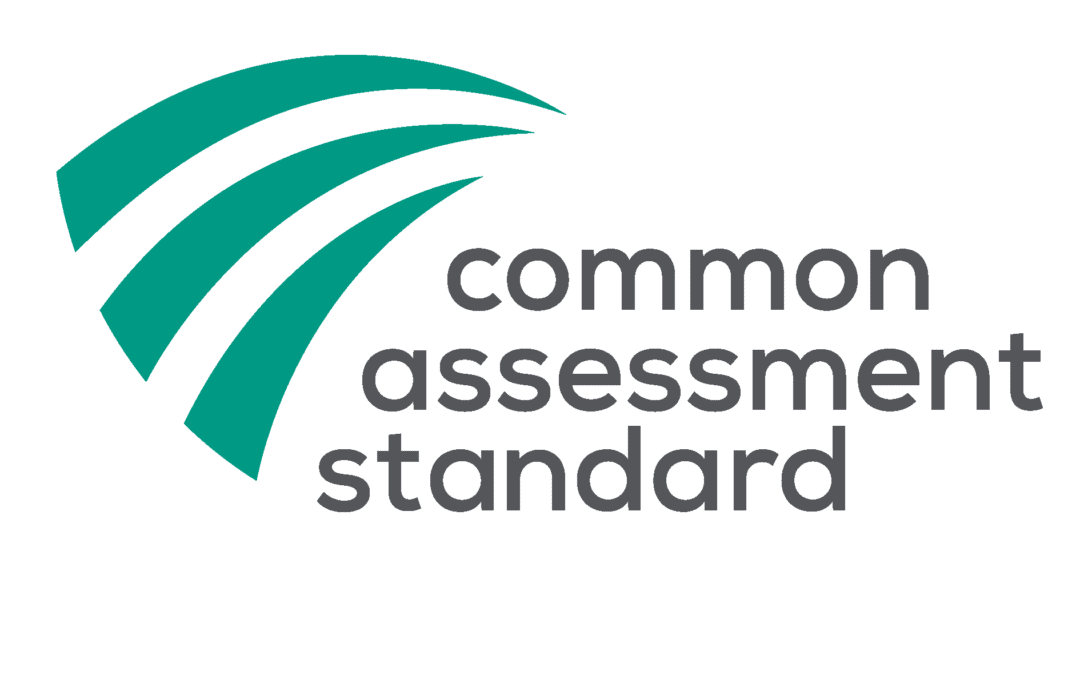
by Clair Mooney | 30 Mar, 2021 | Main News Feed
Major contractors now adopting the Common Assessment Standard
Build UK has announced that the new industry-wide pre-qualification (PQ) system is now fully up and running, simplifying a complex system for the benefit of everyone in the construction sector. The rollout of the Common Assessment Standard will significantly reduce the duplication of time, effort and resources that are costing the sector up to £1 billion a year.
Major contractors and clients – including Balfour Beatty, Costain, HS2, Mace, Multiplex and Skanska – have all adopted the Common Assessment Standard meaning that members of their supply chains will need to obtain just one certification to tender for work with them. This follows the recent implementation of a new data sharing solution, which enables contractors and clients to obtain key PQ data from any one of three Recognised Assessment Bodies: Achilles, CHAS or Constructionline.
The Common Assessment Standard is an industry-agreed question set with two levels of certification – desktop and site-based – and companies can apply to any Recognised Assessment Body to get the appropriate level dependent upon their trade, size and requirements of their clients.
Created by Build UK with the support of CECA, the Common Assessment Standard is endorsed by the Construction Leadership Council (CLC), which is actively seeking its adoption throughout Government construction procurement, including the Construction Playbook.
Jo Fautley, Deputy Chief Executive of Build UK, said: “We’re delighted that the new system is now fully up and running and already being used by major contractors and clients. It’s been a collaborative effort, involving companies across the whole sector, and the new system is a huge step towards more efficient working, which is more important than ever in the current challenging economic climate.”
Neil Mant, Chair of the Interim Cross Industry Body, which has overseen the development of the new system, said: “The new PQ system is a huge step forward for construction. With a single Common Assessment Standard and data sharing now in place, we have not only eliminated a huge amount of costly duplication of effort but also raised the bar in assessing the competence of the supply chain. Supply chain companies will need certification from only one of the three Recognised Assessment Bodies, and contractors can continue to deal with the body they have an existing relationship with.”
Andy Mitchell, Chair of the CLC, said: “The CLC is delighted to endorse the Common Assessment Standard which is set to transform the construction PQ process. It is a real and practical way of reducing bureaucracy and improving quality in the industry and it comes at just the right time. Companies will be able to demonstrate that they meet an agreed industry standard, and clients and contractors will be able to rely on the certification. The CLC will be encouraging the adoption of the Common Assessment Standard throughout public and private sector procurement.”

by Clair Mooney | 26 Mar, 2021 | Membership, Technical
To help specifiers understand the performance of wall mounted acoustic absorbers, FIS has published a new technical note, Specifying Acoustic Absorbers where they will be installed against a wall.
The sound quality of a room often doesn’t need a specialist to tell you that something is wrong. Whether it is an office, café or community space, it can sound like being in an unfurnished room and as people arrive it can become louder and louder for occupants. It is an issue that can be addressed by reducing reverberation caused by hard surfaces through the installation of acoustic absorbers on the walls.
The new guidance will help specifiers understand the acoustic and fire performance of wall mounted acoustic absorbers, acoustics and room acoustics, reverberation and absorption, conformity marking and importantly, their installation.
Iain McIlwee, Chief Executive of the FIS said: “The new technical note is aimed at anyone wanting to address noisy spaces by installing acoustic absorbers on the walls to reduce reverberation.”
This brief guidance provides information on how products are tested, what the results mean, what fire performance needs to be considered and what to look for in terms of how they should be installled so that they perform correctly.
“The positioning and installation of the absorbers can all have a big impact on the effect the absorbers will have, so it is important for specifiers to have all the informationduring the crucial specification stage ,” added Iain McIlwee.
The technical note is available to download at https://www.thefis.org/knowledge-hub/technical/fis-technical-notes-industry-alerts/

by Clair Mooney | 26 Mar, 2021 | Main News Feed
The Government has confirmed that anyone who gets a positive result from a lateral flow device (LFD) test undertaken at home should get a PCR test to confirm the result. However, in the event of a positive result from an LFD test undertaken at a test site, a follow up PCR test is not required and the individual and anyone they live with must self‐isolate from 10 days from the date of the test.
Build UK has published a guide to the Government’s workplace testing programme, which provides an overview of the LFD testing process and the steps required to set up a test site. Members interested in offering workplace testing must register via the Government’s online portal by next Wednesday 31 March and tests will then be provided free of charge until the end of June.

by Clair Mooney | 26 Mar, 2021 | Main News Feed
The Written Ministerial Statement by Housing Secretary Robert Jenrick permitting extended site working hours has been extended until 30 September 2021. The statement makes it clear that local planning authorities in England should not refuse requests to extend working hours on construction sites up to 9pm, Monday to Saturday, without very compelling reasons. In some cases, such as in areas without residential properties, 24‐hour working may be justified.
Requests should be made to the local planning authority which should aim to issue a decision within 10 working days, and the Government has published FAQs with further information.

by Clair Mooney | 26 Mar, 2021 | Skills
A couple of weeks ago FIS sent the email message below to all members, to date CITB have received 19 replies. Without the weight of employers behind it these changes will be shelved until legislation makes it happen. As employer we prefer you to have control.
Following discussions with FIS Working Groups a request to change qualifications was submitted to the Standard Setting Body (SSB) for Construction. In order to meet regulatory requirements, the SSB must show they have consulted on these proposed changes as widely as possible across all four home nations. All of the changes proposed by FIS Working Groups are in a bid to keep people safe and are:
- Change the National Occupational Standards, Recommended Qualification Structure for Interior Systems level 2 by the addition of COSVR355 v3 Erect fire resisting walls and wall linings. This will provide a fire protection qualification outcome for dryliners.
- Add a new National Occupational Standard for service, maintain and repair of operable partition wall systems, as an option. It has been reported there have been accidents and near misses during these operations, the inclusion of this standard will provide a qualification route for individuals employed in this area. For a copy of the proposed draft standard please contact George Swann on 07553 874838 or email georgeswann@thefis.org
- In response to the Grenfell inquiry and the work on competence, insert under ‘methods of work’ as a requirement of knowledge ‘how fire spreads through a building, how to impede it and protect people and the structure’ to COSVR125, 126, 127, 129, 130, 133, 618, 620, 769, 770 all contained I the Recommended Qualification Structure Interior Systems level 2. By doing this the statement will cascade into all qualification outcomes (academic, trained and competence) derived from these standards thereby giving operatives the required knowledge.
If you agree with these changes, please copy and paste the following message and email it to Standards.qualifications@citb.co.uk with the subject header of Interior Systems NOS Changes:
Hello
This message is to show support for the changes requested via FIS Working Groups.
[Insert your normal signature block]
If you disagree with these changes, please explain the reason for your disagreement by email using the address above.
If you have any concerns or need additional information or to discuss the above, please don’t hesitate to contact George Swann on 07553 874838 or email georgeswann@thefis.org Many thanks in anticipation.

by Clair Mooney | 25 Mar, 2021 | Skills
FIS Associate Member DMR Training has secured government National Vocational Qualification (NVQ) funding for the insulation sector in Greater Manchester, Lancashire and Sheffield City regions.
Based in Greater Manchester DMR is a construction training provider and has access to full funding to cover assessment in NVQ Level 2 in Insulation and Building Treatments. A number of pathways exist within this qualification including internal, external wall, cavity wall and loft insulation, all of which qualify for CSCS Skilled Worker ‘blue and ‘gold’ card applications. Funding makes these qualifications free of charge to FIS members.
DMR specialises in onsite NVQ assessment and has been helping construction industry workers gain vocational qualifications and CSCS cards since 2013. DMR Managing Director Dave Radley said, “When I set the company up eight years ago, it coincided with the start of the original Green Deal. We started to deliver qualifications within this area immediately as we felt that it was an important shift in the way the industry works and the effects on the economy. However, it never really took off as expected and demand simply wasn’t there, and government stopped supporting the scheme in 2015. I am delighted that the government is now supporting a green recovery and the retrofit of energy efficiency measures. The ten point plan for a green industrial revolution shows just how serious government are about making it happen this time.”
Dave went on to say, “We want to play our part in building back better, supporting green jobs and contributing to the goal of net zero. We’re looking forward to working with FIS members and helping them gain the qualifications they need for their business to be involved.”
This funding is no longer available but visit www.dmr-training.co.uk for more information
For more information on this and other funded training offers visit www.thefis.org/membership-hub/memberbenefits/member-benefits-training/training-offers-for-members/nvq-training-offers/

by Clair Mooney | 25 Mar, 2021 | Skills
Following the reopening of schools and colleges, the Department for Education (DfE) has confirmed that on‐site training can resume for students of all ages in the following further education (FE) settings if a provider follows the operational guidance:
- Sixth form colleges
- General FE colleges
- Independent Training Providers (ITPs) ‐ defined as organisations that receive Education and Skills Funding Agency (ESFA) formula funding for the provision of 16 to 19 education
- Designated institutions
- Adult and Community Learning Providers (ACLPs)
- Special post‐16 institutions.
All FE providers should continue to follow pre‐COVID‐19 guidance for adult students and “judge the right balance between on‐site and remote delivery in order to provide high quality education and training”. Apprenticeship providers should also read the current apprenticeships guidance, which confirms that FE apprentices may now return to training and assessment in educational settings, in addition to the training and assessment that is currently permitted in the workplace where the apprentice cannot work from home and the workplace is COVID‐19 secure.
There has not been any further guidance issued about resuming face‐to‐face training in the workplace, and companies will need to determine if any training required can be undertaken remotely or is essential at this time, as they may be required to explain how they are complying with current restrictions.
Visit the FIS Skills Hub here to find out about our network of Approved Training Providers



















